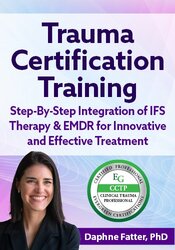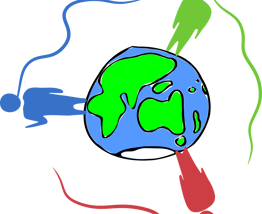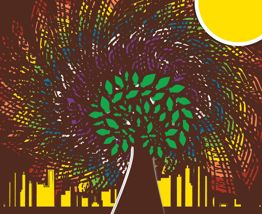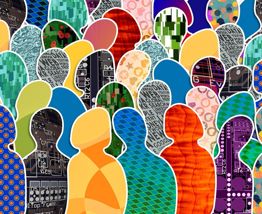Enrol in an online course today for flexible, self-paced learning—no fixed schedule required. Plus, enjoy lifetime access to course materials for convenient revisiting.
Privilege and Otherness: What Our Trainings are Failing to Teach
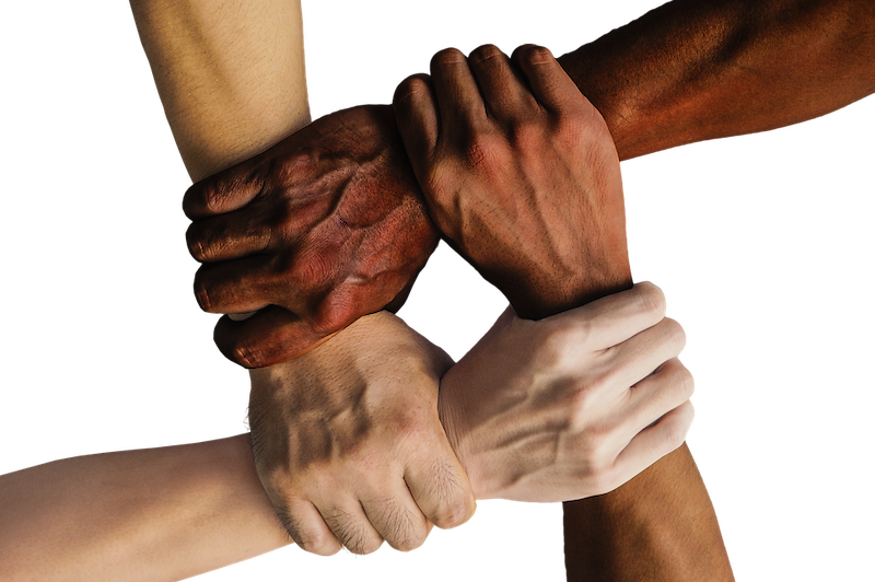
Recently a BAME counselling student of mine complained that she was struggling to write an essay on object relations as she wanted to bring in a more culturally specific perspective. Her fear stemmed from the idea that, should she do so, the course, or her tutors, would see her as troublesome, and exclude her from the course. This example is not unusual. I share it here to expose the metaphorical struggle of some students to be more authentic against the projected position of power and privilege held by training courses, and by psychotherapists.
The tension between compliance and otherness plays an important role for a good number of trainees, and for practitioners difference is in the therapy room all the time. Yet, within counselling and psychotherapy trainings, what we often do is offer little more than a cursory nod towards the nine protected characteristics in the 2010 Equalities Act.
This belies the interesting and deeper meaning of difference. As the French philosopher Deleuze recognised, identity is emergent out of difference. He saw that, although there is a quest towards sameness, ultimately one’s identity is emergent from our ability to separate ourselves from the groupings we previously merged within – be they our family group, peers at school, or the modality of training we chose when becoming a counsellor.
Within our trainings there has been a real ignorance of this constant struggle between sameness and difference, and issues of difference are marginalised out of a fear of how to work with them. Questions such as ‘how does a therapist’s whiteness impact upon black or Asian clients?’ often evoke feelings of fear and consternation within practitioners.
At the University of Brighton, and in my own practice, a consideration of the intersectional nature of difference is therefore hugely important to my work. Coined by Professor Kimberlé Crenshaw intersectional theory posits the idea that within each of our identities we simultaneously hold varying layers of difference and privilege. One might be working class, non-European, and female, aspects that may mark us out as the other; at the same time, we may hold aspects of privilege in being white, able-bodied and young.
An intersectional understanding of the intimate conscious and unconscious relationship between difference and privilege may seem complex. But presenting difference and privilege together provides a more nuanced, and therefore more inclusive, understanding of identity. That is why, when working with difference on trainings, I help students to explore or awaken themselves to their privilege in a group setting, where it can be acknowledged and contained. The varying aspects of otherness, which we all hold, are also then raised from the unconscious for some, and consciously acknowledged for others.
For my student, this intersectional exploration of privilege and otherness meant recognising and reintegrating her projections onto the counselling course. This also involved returning her power to her, and meant she did actually write the essay she wanted to write. The importance of this experience was underlined by her tutor’s positive feedback, and an excellent grade.
The Privilege Test
There are numerous Privilege Tests online, such as this one, that trainees and therapists could undertake. Asking a number of questions, the tests present a personalised understanding of the position of privilege in one’s life. Examples of questions include:
- Do you feel you can show affection for your romantic partner in public without fear of ridicule or violence?
- Have you ever been the only person of your race/gender/sexual orientation in a classroom or workplace setting?
- Have you ever been bullied or made fun of based upon something that you can’t change?
- Were you ever offered a job because of your association with a friend or family member?
The tests can be used in one to one situations, or for those who find more experiential exercises around difference and privilege too exposing.



